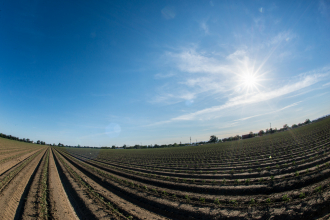USDA. NAL. Water and Agriculture Information Center.
Water Conservation

USDA. Agricultural Research Service.
"The mission of the U.S. Arid Land Agricultural Research Center is to develop sustainable agricultural systems, protect natural resources, and support rural communities in arid and semi-arid regions through interdisciplinary research."
Colorado State University and partners
Information that "addresses agricultural water conservation globally, incorporating various climates with a focus on arid and semi-arid areas in the Western United States."
USDA. Natural Resources Conservation Service.
A tip sheet based on Backyard Conservation techniques to help use less water for garden and lawn waterings.
DOI. Bureau of Reclamation.
"Developing a thorough water conservation plan can help identify water management problems, evaluate options, highlight accomplishments, and plan for improvements."
EPA. Office of Water.
Part of the document, "Cleaner Water Through Conservation," provides suggested engineering and behavioral practices to help reduce water use. This is an archived document.
Center for Urban Education about Sustainable Agriculture
Outlines several "agricultural water-efficiency measures and explains how they can help save water, energy and money, and possibly even increase crop yields."
Michigan Department of Agriculture.
Provides applicable water conservation practices for system management, irrigation scheduling and application practices.
Texas Water Development Board.
Describes "practices, techniques, programs, and technologies that protect water resources, reduce the consumption of water, reduce the loss or waste of water, improve the efficiency in the use of water, or increase the recycling and reuse of water so that a water supply is made available for future or alternative uses."
United Nations. Food and Agriculture Organization.
Reviews water conservation "techniques which have been tested and found useful somewhere in the world, and which might be suitable for use in other conditions." Includes a section on water harvesting.
 An official website of the United States government.
An official website of the United States government.
